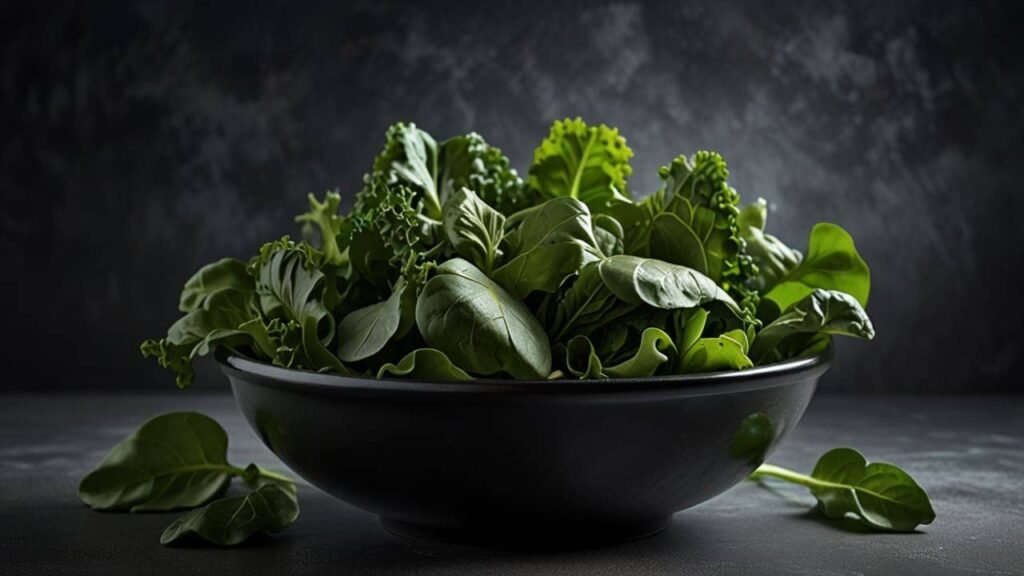In our quest for a healthier lifestyle, we often focus on physical fitness, heart health, or managing conditions like diabetes and digestive health. However, one crucial aspect that is often overlooked is our brain health and emotional well-being. What we eat profoundly impacts our mood, cognitive function, and overall mental health. A diet rich in specific nutrients can help maintain a healthy brain and promote a positive emotional state, allowing us to better manage stress and enhance mindfulness.
But what foods are best for supporting brain health and emotional well-being? Let’s dive deep into the top eight nutrient-rich foods that nourish both the mind and body, ensuring that our brain health and emotional well-being remain at their peak.
1. Fatty Fish: The Ultimate Fuel for Brain Health and Emotional Well-being

Fatty fish like salmon, mackerel, and sardines are often hailed as the best foods for promoting brain health and emotional well-being. They are rich in Omega-3 fatty acids, which are vital for maintaining the structure and function of brain cells, supporting a balanced emotional state, and reducing anxiety and depression.
The Power of Omega-3 for Enhancing Brain Health and Emotional Well-being
Omega-3 fatty acids, especially DHA (docosahexaenoic acid), are critical for brain health and emotional well-being. DHA constitutes about 25% of the total fat content in the brain. These fats help build cell membranes, promote new neuron growth, and reduce inflammation that can lead to cognitive decline and mood disorders. According to a study published in the Journal of Clinical Psychiatry, people who consume higher levels of Omega-3 are 30% less likely to experience depression, a key component of emotional health.
Fatty Fish and Its Role in Supporting Emotional Well-being
Eating fatty fish can significantly enhance emotional well-being. Omega-3s boost serotonin production, a neurotransmitter that regulates mood and supports overall brain health and emotional well-being. With higher levels of serotonin, you’re more likely to experience calmness, happiness, and lower levels of anxiety. Incorporating fatty fish into your diet at least twice a week can support your emotional health, reduce the risk of mood swings, and help you manage stress more effectively.
How to Incorporate More Fatty Fish into Your Diet for Better Brain Health
Adding fatty fish to your diet is easier than you think! Try grilled salmon with a side of vegetables for dinner, mackerel on whole-grain toast for breakfast, or sardines in your salad for a tasty lunch. If you’re not a fan of fish, Omega-3 supplements like fish oil or algae oil (a plant-based option) are good alternatives to support brain health and emotional well-being.
2. Dark Leafy Greens: Essential Nutrients for Brain Health and Emotional Well-being

Dark leafy greens like spinach, kale, and Swiss chard are packed with antioxidants and essential nutrients that promote brain health and emotional well-being. These greens are high in vitamins A, C, and K, as well as folate, which have been linked to lower rates of cognitive decline and improved mood.
Antioxidants for Protecting Brain Health and Emotional Well-being
Antioxidants like vitamins A and C fight oxidative stress, which is known to damage brain cells and contribute to neurodegenerative diseases. A study by Harvard Medical School found that individuals who consume a diet rich in antioxidants have a 34% lower risk of developing cognitive impairments as they age. Dark leafy greens provide a natural source of these powerful antioxidants, protecting your brain from premature aging and promoting overall brain health and emotional well-being.
Folate and Its Impact on Emotional Well-being and Brain Health
Folate, or vitamin B9, plays a crucial role in the production of neurotransmitters like serotonin and dopamine, which are essential for mood regulation and overall brain health and emotional well-being. A deficiency in folate has been linked to depression and cognitive decline. Ensuring a regular intake of dark leafy greens can help maintain adequate folate levels, supporting both brain health and emotional balance.
Delicious Ways to Enjoy Dark Leafy Greens for Better Brain Health
Dark leafy greens can be enjoyed in various ways to enhance your brain health and emotional well-being: blend them into smoothies, sauté them with garlic and olive oil, or toss them in salads with nuts and berries. They are incredibly versatile and can be easily added to any meal.
3. Berries: Nature’s Antioxidant Powerhouses for Brain Health and Emotional Well-being

Berries, such as blueberries, strawberries, and blackberries, are not just delicious; they are loaded with antioxidants, specifically flavonoids, which are known to boost brain health and emotional well-being.
Flavonoids and Their Benefits for Cognitive Function and Emotional Well-being
Flavonoids in berries have been shown to improve memory and cognitive function, key components of overall brain health and emotional well-being. A study by the American Journal of Clinical Nutrition discovered that individuals who consumed berries regularly had a slower rate of cognitive decline. The antioxidants in berries help reduce inflammation and oxidative stress in the brain, enhancing overall cognitive performance.
Berries: A Sweet Treat for Emotional Well-being and Brain Health
Berries are fantastic for both brain health and emotional well-being. The antioxidants in berries have been linked to lower levels of depression, anxiety, and stress. They can help increase the production of mood-enhancing neurotransmitters, creating a sense of calm and happiness, which directly impacts your emotional state.
Creative Ways to Add Berries to Your Diet to Boost Brain Health
Berries are incredibly versatile and can be enjoyed in many ways to support brain health and emotional well-being. Add them to your morning oatmeal, blend them into smoothies, sprinkle them over yogurt, or enjoy them fresh as a snack. They’re a simple yet powerful addition to your diet.
4. Nuts and Seeds: Nutrient-Dense Powerhouses for Brain Health and Emotional Well-being

Nuts and seeds, such as walnuts, almonds, chia seeds, and flaxseeds, are nutrient-dense powerhouses that offer significant benefits for brain health and emotional well-being.
Omega-3 and Vitamin E for Brain Health and Emotional Stability
Nuts and seeds are rich in Omega-3 fatty acids and Vitamin E, both of which play a vital role in maintaining brain health and emotional well-being. Omega-3s help build and repair brain cells, while Vitamin E protects the brain from oxidative stress. A study from the National Institute on Aging found that individuals who consumed nuts regularly had a 60% lower risk of developing cognitive decline, supporting long-term brain health.
Stress Management and Mindfulness with Nuts and Seeds
These tiny nutritional powerhouses can help manage stress and enhance mindfulness, two essential aspects of emotional well-being. Magnesium in nuts like almonds is known for its calming effects on the nervous system, reducing anxiety and promoting relaxation. Incorporating a handful of nuts and seeds into your daily routine can help you maintain a balanced mood and support your brain health and emotional well-being.
Easy Ways to Snack on Nuts and Seeds for Brain Health
Enjoy nuts and seeds as a snack, sprinkle them over salads, blend them into smoothies, or use them as a crunchy topping for yogurt. They are also excellent in baked goods like muffins or energy bars, making it easy to enhance your brain health and emotional well-being.
5. Whole Grains: Vital Fuel for Brain Health and Emotional Well-being

Whole grains like oats, quinoa, brown rice, and barley are rich in complex carbohydrates, which provide a steady source of energy for the brain, promoting overall brain health and emotional well-being.
Complex Carbohydrates: Key to Sustained Brain Health and Emotional Stability
Unlike simple carbs that cause energy spikes and crashes, complex carbohydrates in whole grains provide a steady release of glucose, which is the brain’s primary source of energy. According to the American Heart Association, diets rich in whole grains are associated with a lower risk of depression and anxiety, supporting brain health and emotional well-being.
Whole Grains for Emotional Stability and Brain Health
Whole grains contain B vitamins, which are known to reduce stress and anxiety by supporting the nervous system. They also aid in the production of serotonin, enhancing mood and promoting emotional stability, key components of brain health and emotional well-being.
Delicious Ways to Include Whole Grains in Your Diet for Brain Health
Enjoy whole grains by swapping white rice for brown rice or quinoa, having oatmeal for breakfast, or adding barley to soups and stews. These grains are easy to incorporate into meals and offer substantial benefits for both brain health and emotional well-being.
6. Dark Chocolate: A Sweet Indulgence for Brain Health and Emotional Well-being

Dark chocolate, rich in cacao content, is more than just a tasty indulgence. It is packed with antioxidants, specifically flavonoids, which are beneficial for brain health and emotional well-being.
Flavonoids for Cognitive Enhancement and Emotional Stability
Flavonoids in dark chocolate improve blood flow to the brain, enhancing cognitive function and memory, which supports overall brain health and emotional well-being. A study published in the Journal of Nutrition found that individuals who consume dark chocolate regularly show improved performance on memory tests.
Dark Chocolate for Managing Stress and Enhancing Emotional Well-being
Dark chocolate boosts mood by increasing endorphins and serotonin levels, helping to reduce stress and promote feelings of happiness. Its magnesium content also contributes to relaxation and emotional balance, vital for maintaining brain health and emotional well-being.
How to Enjoy Dark Chocolate for Maximum Brain Benefits
Opt for dark chocolate with at least 70% cacao content to maximize its benefits. Enjoy it as a snack, add it to smoothies, or use it in baking. Just a small amount can positively affect your brain health and emotional well-being.
7. Fermented Foods: Probiotics for Brain Health and Emotional Well-being

Fermented foods like yogurt, kefir, sauerkraut, and kimchi are rich in probiotics, which are essential for gut health and, surprisingly, brain health and emotional well-being.
The Gut-Brain Connection and Its Impact on Emotional Well-being
The gut and brain are connected through the gut-brain axis, a communication network that links emotional and cognitive centers of the brain with the gut. Probiotics in fermented foods support a healthy gut microbiome, which in turn promotes brain health and emotional well-being by reducing inflammation and regulating mood.
Probiotics for Reducing Anxiety and Enhancing Brain Health
Research has shown that a healthy gut microbiome can reduce symptoms of anxiety and depression, key components of emotional health. A study published in the Psychiatry Research Journal found that participants who consumed probiotics experienced a significant reduction in stress and anxiety levels, supporting brain health and emotional well-being.
How to Include More Fermented Foods in Your Diet for Better Brain Health
Incorporate fermented foods into your diet by enjoying yogurt with fresh fruit, adding sauerkraut to sandwiches, or having a glass of kefir as a refreshing drink. These foods are easy to add to your meals and provide immense benefits for both brain health and emotional well-being.
8. Turmeric: The Golden Spice for Brain Health and Emotional Well-being

Turmeric, particularly its active compound curcumin, is a potent spice known for its anti-inflammatory and antioxidant properties, making it a top food for supporting brain health and emotional well-being.
Curcumin for Cognitive Function and Emotional Health
Curcumin crosses the blood-brain barrier and has been shown to increase levels of brain-derived neurotrophic factor (BDNF), a protein linked to improved brain function and reduced risk of neurodegenerative diseases. It also enhances mood by boosting serotonin and dopamine levels, directly impacting brain health and emotional well-being.
Turmeric for Emotional Well-being
Turmeric supports emotional well-being by improving mood and reducing symptoms of depression. A study in the Journal of Affective Disorders found that curcumin supplementation significantly improved mood and emotional health in individuals with depression.
How to Enjoy More Turmeric in Your Diet for Brain Health
Add turmeric to soups, stews, and curries, or make a turmeric latte with almond milk for a warming drink. This versatile spice can be included in many recipes to boost both flavor and brain health and emotional well-being.
Discover More Ways to Nurture Your Brain Health and Emotional Well-being
By incorporating these nutrient-rich foods into your diet, you can significantly improve your brain health and emotional well-being. Ready to dive deeper into how nutrition can enhance your life? Explore our other articles on healthy living, mindfulness, and stress management to find more ways to support your overall well-being!
For more tips and detailed guides on enhancing your mental and physical health, visit here.


